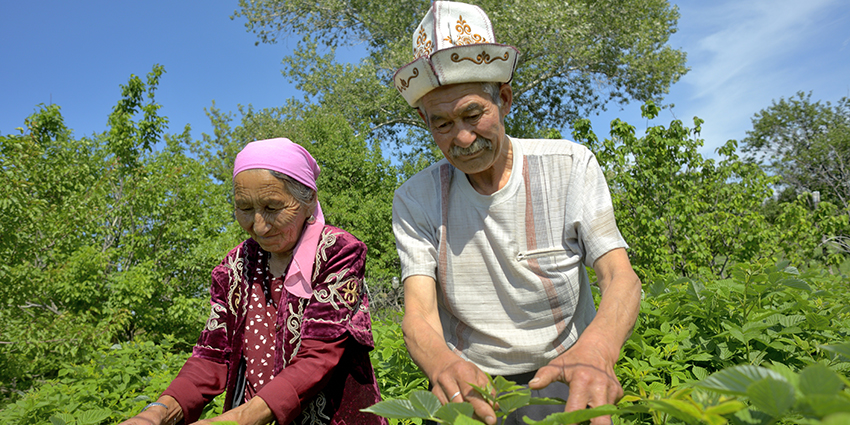OXUS Kyrgyzstan and its six commandments for the Covid-19 crisis
Interview with Denis Khomyakov, DG, OXUS Kyrgyzstan

Since the start of the Covid-19 crisis, the Grameen Crédit Agricole Foundation has worked on several initiatives to better support the microfinance sector. OXUS Kyrgyzstan is one of the microfinance institutions that benefited from the Foundation's response to the crisis. Five questions for Denis Khomyakov, Director General of OXUS Kyrgyzstan (OKG).
____________________
The Covid-19 crisis has had a significant impact on the economy in Kyrgyzstan and on your organization. What measures have you adopted to address it?
The crisis has hit Kyrgyzstan's economy and healthcare system hard. With border closures and lockdowns, industry and agriculture have declined, and transportation services have collapsed. Although new activities have emerged (such as delivery services), Covid-19 has impacted the country's economy and, by extension, our customers and our business.
In this context, we at OKG were well prepared. Starting in February, we first protected our staff by teleworking or short-time working at two-thirds of their salary, which involved digitizing our operations. In May, we adopted in-person and remote working thanks to the anti-Covid measures included in the Covid-19 Business Continuity Plan (BCP), which was quickly operational.
We have always ensured good communication. To this end, we first created a Covid-19 Committee composed of members from different departments and myself to structure communication and define operational measures. Several actions were undertaken: we organized communication with branches and clients, established loan restructuring and customer support, and decided to negotiate with lenders to obtain a grace period on repayments. We also regularly communicated with various stakeholders: the governance, which guided and advised us, the lenders, who coordinated to ensure the continuity of our activities, and the National Bank, which provided us with clarification on the possibilities for restructuring and exemptions.
What support did the Foundation provide to strengthen OKG's response?
The Foundation's Covid-19 surveys were well organized and always timely. The Foundation's Covid-19 Observatory, which publishes survey results and other useful articles, was invaluable in assessing our situation and position in the region. The Foundation also led OKG's lending group in implementing the coordinated restructuring measures and extensions; under the Foundation's leadership, with regular monitoring by Julie Serret, the Foundation's Investment Officer, we acted immediately to prepare for the worst-case scenario and agreed on terms with the lenders together.
What were the main measures implemented by this group of lenders?
The lending group decided to roll over all payments due between May and December 2020 for 12 months. The lenders also simplified reporting by collecting information through a common document, which gave us more time to focus on other issues. They also provided us with tools to create a PCA, to restart business while protecting staff. As a result, we didn't really have to worry about the liquidity situation. We were able to pay our staff salaries and benefits without delay.
What lessons do you draw from this period for the evolution of microfinance?
Here are my six commandments:
- Plan ahead. Every business should have a business continuity plan (BCP) for these types of events. Having an IT disaster recovery plan is very useful—it helped us greatly respond to the crisis and keep the system running.
- Take care of the staff, inform them of the situation and the measures decided.
- Make decisions. Don't be too late, but think twice.
- Inform investors and lenders of the situation and provide a forecast (detailed, even if you don't know how the situation will evolve) for the coming months.
- Communicate often with your board of directors. Its composition and experience will help you navigate any type of crisis.
- Be digital. Digital channels are invaluable for communicating with customers and staff. Covid-19 has pushed us to think and be more digital.
What is the outlook for OKG in 2021?
The company continues to expand and grow. We plan to open two new branches in rural areas and serve low-income customers. We plan to introduce tablets to speed up loan disbursements, but also to collect fewer paper documents and be more environmentally friendly. We also plan to expand green loans to help combat air pollution and intensive energy use in Kyrgyzstan.
Other initiatives, such as our work on customer loyalty and the project to support women entrepreneurs launched in early 2020, were slowed by the health crisis. We will resume them. We will remain a reliable company for our customers, with a zero-exclusion approach!



Leave a Reply
Want to join the discussion?Feel free to contribute!